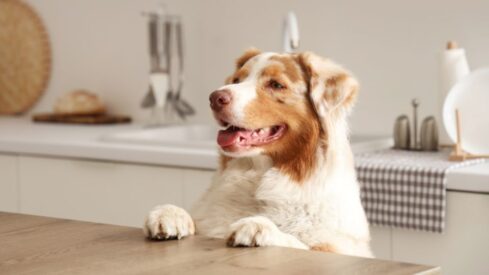Spotlight on the UK: What’s going on among British pet owners?

How is pet ownership changing? And how are financial pressures impacting on consumer spending and on the pet food market as a whole? A recent survey provides some answers.
A study by trade association UK Pet Food has revealed some interesting insights based on data acquired from British pet parents. The UK is witnessing demographic shifts in pet ownership, economic instability in the pet food market and new consumer spending patterns.
Pet ownership demographics
In the UK, cat ownership is currently most common in the 25-44 age group. Meanwhile, people under 54 are more likely to own a dog than those over 55. Geographically, London ranks top for both dog and cat ownership, with 46% of homes having a dog and 44% having a cat.
Dog ownership in other regions is not far behind, with percentages ranging from 40-42%, whereas cat ownership outside London drops to 30% or lower, according to the study.
For the first time since the pandemic-induced puppy and kitten boom, age data for newly acquired cats and dogs has been collected. The figures reveal that 24% of new pet acquisitions were kittens, 23% were adult cats, 34% were puppies and 19% were adult dogs. This equates to approximately 2.5 million households acquiring adult cats and around 2.1 million households acquiring adult dogs over the past 4 years.
It is encouraging to see this growing appreciation for mature pets across all demographics. One notable gender difference can be observed, with more men than women choosing to adopt adult cats (27% compared with 18%).
Nuance in the pet food market
The UK pet food market in 2024 presents a complex picture of growth and challenges. While the market value has reached new heights, driven by the increasing popularity of cats and dogs, the overall pet population has seen a decline due to reductions in small animal numbers.
Economic instability continues to exert a significant influence over the pet food market. For example, the challenges brought about by Brexit remain evident. Exports to the European Union (EU) fell by 4% in 2023. Although this is a slight improvement from the 8% decline recorded in 2022, official data from the UK government reveals that the decrease in EU exports is not being offset by gains from exports to non-EU countries. These declined by 7% between 2022 and 2023.
Additionally, the ongoing war in Ukraine has exacerbated economic pressures by driving up energy prices. This has resulted in the highest inflation rates seen in many years, further compounded by rising interest rates. The increased costs of production have inevitably filtered through to consumer prices, leading to higher costs for basic food items, including pet food.
Pet owners’ spending habits
As a result of this cost-of-living crisis, some pet parents are adapting their spending habits. According to the survey, 8% of British pet owners have had to make cuts in their spending on pets due to financial pressures.
Behaviors include sticking to one product format while opting for cheaper alternatives, buying in bulk when products are on promotion or changing the pet’s diet from wet food to dry complete food. Pet parents are also increasingly likely to switch between retailers.
The survey also indicates that spending on pet treats has stabilized. This suggests that the surge in treat purchases observed during the pandemic – when pet owners were at home more and likely to treat their pets more frequently – has returned to more typical levels.
Additionally, the researchers believe that more pet owners are supplementing their pets’ diets with table scraps and home-prepared food, instead of commercially prepared pet food. This economic environment has created a challenging landscape for pet food manufacturers and retailers active in the UK.

